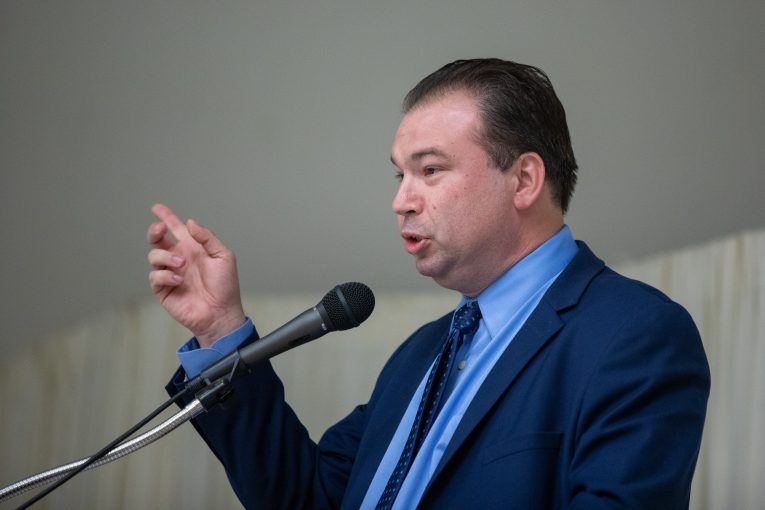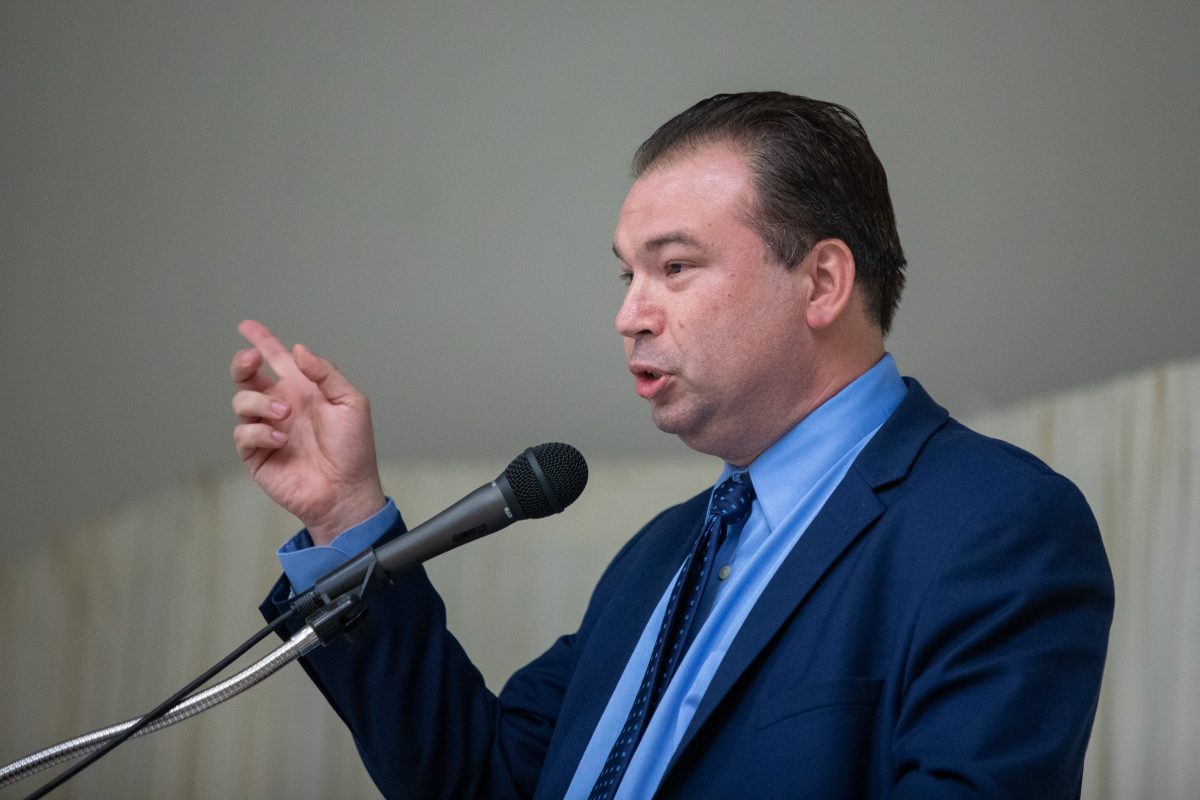

By Jeffrey Deskovic
“Looking back” will feature reprints of articles that Jeff previously wrote while a columnist at The Westchester Guardian, which encompass topics that are applicable here in CA as well as across the country and not simply applicable to NY.
On Dec. 14th, 2010, the New York State District Attorney’s Association held a major press conference announcing their support for the videotaping of all police interrogations. It’s worthy of note that, until very recently, that organization had stood firmly against legislative proposals for the same. In fact, as recently as two months ago, when this reporter/advocate appeared before their Best Practices committee, they were still undecided with respect to this issue, having previously gone on record in opposition to it.
I was appearing before the committee by invitation, their having informed me that they were considering anti-wrongful conviction policies and proposed legislation, and that they were seeking outside input. My presentation before them involved a sharing of the details of my own wrongful conviction and prosecution, general anti-wrongful policies and proposals, a reviewing of ways the prosecution went wrong, and an extensive question and answer period, a lot of which focused on interrogation, tell-tale signs of false confessions, and ways in which videotaping would have changed the outcome.
While it was very encouraging to learn just a few weeks after our meeting of the DA’s Association’s press release calling for “video recording of interrogations of suspects who are in custody in  their entirety” and their having been joined in their press conference by leaders of the New York state Sheriffs’ Association, the New York State Association of Chiefs of Police, the New York City Police Department and the New York State Police, in addition to the availability of numerous grants to underwrite and facilitate the installation of videotaping throughout the state, nevertheless it would quickly become clear that legislation remains necessary along with additional funding.
their entirety” and their having been joined in their press conference by leaders of the New York state Sheriffs’ Association, the New York State Association of Chiefs of Police, the New York City Police Department and the New York State Police, in addition to the availability of numerous grants to underwrite and facilitate the installation of videotaping throughout the state, nevertheless it would quickly become clear that legislation remains necessary along with additional funding.
The funds presently available include $1.6 million from the New York State Division of Criminal Justice Services (DCJS) and the New York State Bar Association, and additional funding of $400,000 from the federal Byrne Justice Assistance Grant funding to expand video recording to counties that currently do not have the capability.
Despite the statewide broad-based endorsement as well as a substantial start on funding, we were reminded of the need for legislation mandating recording based upon the following report from the POST (Peace Officer Standards and Training) standards editorial board in Syracuse, dated December 21st, noting the backpedaling of the Syracuse Police Department despite their having initially supported it. For reasons known only to them, their department, in a stunning about-face, announced that they will instead stick to their prior policy of “video recaps” of interrogations after a confession has been obtained.
Speaking to the need for additional funding in their press release, the DA’s association “praised the additional funding being provided by DCJS exclusively for equipment purchase and installation, but urged legislators for greater financial support, which will be essential to maintain and expand current programs while allowing those counties and agencies without the capability to institute the practice. successful implementation of video recording involves more than the purchase and installation of equipment. While shared facilities and group purchasing rates are being explored to reduce costs, significant additional costs remain, including the construction or renovation of interview rooms, particularly if an agency wishes to sound-proof the space; the purchase and maintenance of equipment so recordings can be played for grand juries, court hearings and trials; and the maintenance, storage and transcription and redaction of recordings.”
The association’s release further said, “These recordings capture critical evidence needed in the investigation and prosecution of criminal cases and preserve information used to resolve a person’s claim of innocence.”
I agree with their statement. As I see it, there are numerous benefits to be derived from the practice of recording interrogations, including: capturing the entire suspect-law enforcement interaction, which assists in evaluating whether a confession was coerced; whether the confession is truthful by means of ascertaining whether the police accidentally or intentionally supplied crime details; and any signs of mental illness or other behavioral influences such as drugs or alcohol from the suspect. Law enforcement benefits as well: protection of honest police officers from false allegations of coercion; better evidence for the prosecution; and as a result more cases resolved via plea bargains.
We cannot rely upon voluntary compliance because, as the Syracuse Police Department’s reversal illustrates, some will not. Of course, legislation mandating recording that is not accompanied by the necessary funding is ineffective. Despite the current economic crises, the Governor’s Office and both houses of the state legislature must understand that the actual economy and efficiency that will result from videotaped recording, far outweigh the costs, most of which are one-time expenses. In a word, an ounce of prevention via prevention of wrongful convictions will be well worth a pound of cure.
“Jeffrey Deskovic, Esq, MA, is an internationally recognized wrongful conviction expert and founder of The Jeffrey Deskovic Foundation for Justice, which has freed 9 wrongfully convicted people and helped pass 3 laws aimed at preventing wrongful conviction. Jeff is an advisory board member of It Could Happen To You, which has chapters in CA, NY, and PA. He serves on the Global Advisory Council for Restorative Justice International, and is a sometimes co-host and co-producer of the show, “360 Degrees of Success.” Jeff was exonerated after 16 years in prison-from age 17-32- before DNA exonerated him and identified the actual perpetrator. A short documentary about his life is entitled “Conviction“, and episode 1 of his story in Virtual Reality is called, “Once Upon A Time In Peekskill“. Jeff has a Masters Degree from the John Jay College of Criminal Justice, with his thesis written on wrongful conviction causes and reforms needed to address them, and a law degree from the Elisabeth Haub School of Law at Pace University. Jeff is now a practicing attorney.
